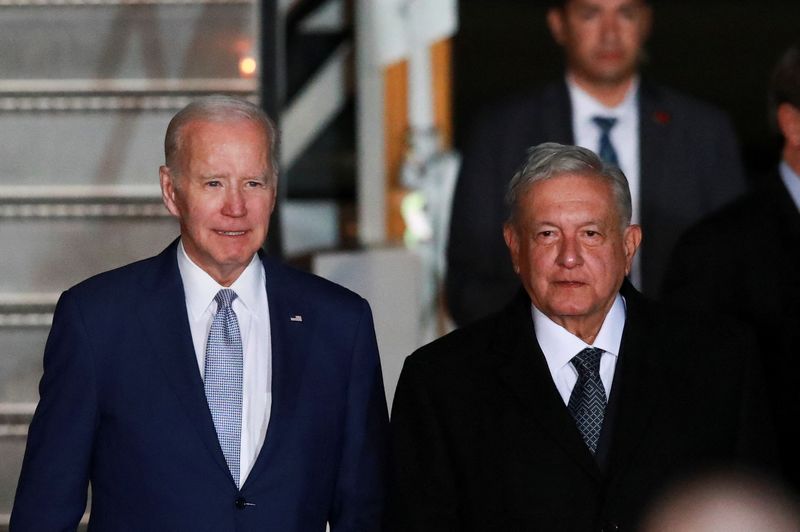Topics of North American Summit
2023.01.09 12:43

Topics of North American Summit
By Kristina Sobol
Budrigannews.com – Even though tensions over Mexico’s energy policy limit their ability to work together, U.S. President Joe Biden and his Mexican counterpart hope to make progress on improving economic integration, fighting drug cartels, and controlling immigration on Monday.
After Vice President Joe Biden arrived in Mexico City on Sunday evening for a North American leaders’ summit, Mexican officials, led by President Andres Manuel Lopez Obrador and Foreign Minister Marcelo Ebrard, established the bilateral agenda between the United States and Mexico.
Biden was accompanied by Lopez Obrador from the airport to his hotel, and the two discussed a number of topics, including migration and regional economic cooperation, on Monday.
At a news conference, Lopez Obrador stated that he expected to reach “good agreements” with Biden and that “integration needs to be strengthened.”
The first summit between Biden and Canadian Prime Minister Justin Trudeau since late 2021 will take place between Monday and Wednesday at Lopez Obrador’s residence. Trudeau will arrive on Monday afternoon, and the trilateral leaders are scheduled to hold talks on Tuesday.
Jake Sullivan, the U.S. National Security Advisor, stated that Biden believed he would have “commitments for stronger cooperation” to combat fentanyl, a synthetic opioid that is attributed to the deaths of thousands of Americans.
Ovidio Guzman, a prominent drug smuggler who is wanted in the United States, was apprehended by Mexican security forces last week.
Even though disagreements persist regarding Lopez Obrador’s nationalist energy policies, which led Washington and Ottawa to launch a formal trade complaint in July, the three leaders are expected to discuss expanding economic ties.
The United States-Mexico-Canada (USMCA) regional trade agreement has increased calls for businesses to relocate their operations from Asia as a result of the COVID-19 pandemic’s impact on supply chains.
Additionally, Lopez Obrador’s proposal to restrict the importation of genetically modified corn has alarmed the United States. Mexico agreed to put off the ban until 2025, but the problem will probably come up again. Auto rules of origin have also been a source of contention between the three trading partners.
According to Jake Colvin, President of the National Foreign Trade Council, “trade tensions over automobiles, customs rules, genetically modified corn, and Mexico’s energy policies are already high and could sharpen.”
He continued, “The United States, Canada, and Mexico need to be on the same economic page to create a North American corridor to outcompete China.”
Leftist Lopez Obrador asserts that his energy policy is a matter of national sovereignty, claiming that previous governments skewed the market in favor of private interests.
According to the United States and Canada, Lopez Obrador’s campaign to give control of the market to his cash-strapped state energy companies has hurt their businesses, which has hurt investment prospects.
Friday, Trudeau told Reuters he would argue that resolving the energy dispute would assist in attracting more foreign capital to Mexico and that he was optimistic about making progress.
In protest of Biden’s exclusion of Cuban, Venezuelan, and Nicaraguan leaders, Lopez Obrador rejected Biden’s invitation to the Summit of the Americas in Los Angeles in June. As part of this push, Lopez Obrador wants to talk about his plan to increase solar power in northern Mexico and get financial support from the United States for it.
Mexico stated that the plan to generate solar power in Sonora, the northern border state, would be discussed on Monday.
In addition, Mexico has pleaded with the United States to allocate funds to Central America and southern Mexico in order to promote development, halt migration from a region that has long been poor, and make it simpler for migrants to obtain employment in the United States.
More The main events of today in financial markets
Christopher Landau, the US ambassador to Mexico under former President Donald Trump, stated that domestic politics would make it difficult to reach agreements on energy and migration.
He stated, “There’s no obvious deal that satisfies all of their domestic interests, but I think it’s in all their domestic interest to say they get along.” However, there was no apparent deal.








